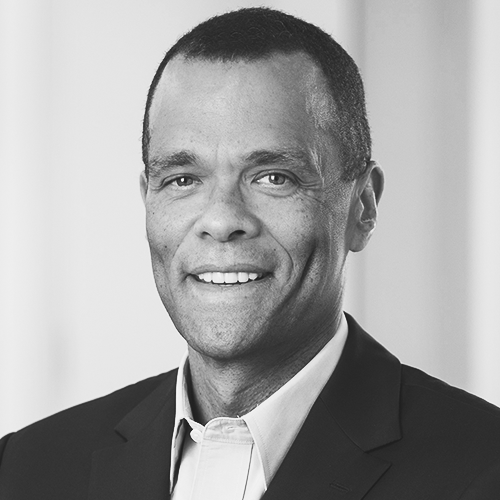Christine Mehta is a Regional Economic Development Specialist at the Center for Regional Economic Advancement (CREA) at Cornell University. She produces data-driven research on economic development in Upstate New York and advances CREA’s entrepreneurial programs by connecting entrepreneurs with grant capital and development opportunities.
The Post-Pandemic Future of College Towns
Event Overview
The words of Albert Einstein remind us that “In the midst of every crisis lies a great opportunity.” The pandemic presents a chance for local and regional leaders to reimagine and diversify their economies. College towns by their nature are hubs of innovation, and the entrepreneurial spirit that permeates these communities can be leveraged into new jobs and growth even in these unprecedented times.
In this session, national experts on innovation, economic development, and entrepreneurship will engage in a moderated discussion on the future of college towns and the economies that depend on them.
What You'll Learn
- The ways in which COVID-19 is uniquely affecting college towns as institutions of higher education confront historic challenges
- How the impacts of the pandemic extend beyond college towns and into their surrounding regions
- Opportunities to leverage innovation as a means to overcome economic challenges in college towns with large research institutions
- How business leaders and policymakers can best support entrepreneurship and economic development in college towns
Speakers
Justin Baer writes about finance and the investment management industry for The Wall Street Journal. Mr. Baer joined the Journal in 2011 as investing editor. In that role, he managed a team of reporters and spearheaded the newspaper’s coverage of hedge and pension funds, insurance companies, and exchanges. He returned to a reporting post in 2013 to cover Wall Street. He previously served as Wall Street correspondent for the Financial Times. Working from the FT’s New York bureau, Mr. Baer also wrote about airlines, industrial conglomerates, and Warren Buffett’s Berkshire Hathaway, Inc. Mr. Baer spent more than eight years at Bloomberg News, where his beats included mergers and acquisitions, banking, and telecommunications. His reporting career began at the Journal Gazette in Fort Wayne, IN He has a Bachelor’s degree from Syracuse University and a Master’s from Northwestern University’s Medill School of Journalism.
Marcela Escobari is a Senior Fellow in the Global Economy and Development Program at Brookings, where she leads the Workforce of the Future initiative. She was Assistant Administrator of USAID’s Bureau for Latin America and the Caribbean in President Obama’s administration. For over 10 years, Ms. Escobari served as Executive Director at Harvard’s Center for International Development, a research center working to generate breakthrough ideas that bring stable, shared, and sustainable prosperity to developing countries. The World Economic Forum named her a Young Global Leader in 2013. Ms. Escobari co-authored the book “In the River They Swim: Essays from Around the World on Enterprise Solutions to Poverty” and holds a B.A. in economics from Swarthmore College as well as an M.A. in public policy from the Harvard Kennedy School.
Matt Marx is the Bruce F. Failing, Sr. Chair in Entrepreneurship and Professor of Management & Organizations in the Dyson School of Applied Economics & Management within the SC Johnson College of Business at Cornell University He also serves as the Faculty Director of Entrepreneurship at Cornell and a Faculty Research Fellow at the National Bureau of Economic Research. Previously, he was an Associate Professor at the Massachusetts Institute of Technology Sloan School of Management and Boston University Questrom School of Business.
Professor Marx’s research focuses on reducing barriers to the commercialization of science and technology, which he experienced firsthand during a decade as an executive and engineer at two startups in the speech-recognition industry that achieved a combined $1.4 billion dollars in equity value. His articles have appeared in journals from multiple disciplines including Management Science, the Review of Financial Studies, Organization Science, the American Sociological Review, and Science. His work on employee non-compete agreements and job mobility played a key role in policy reforms for Hawaii and Massachusetts. Press coverage includes the New York Times, BBC, The Economist, Washington Post, Boston Globe, The Atlantic, Wired, Fortune, Forbes, and Bloomberg.
As part of the Innovation Information Initiative steering committee, Professor Marx curates large-scale, open datasets for the scientific commons. Available at relianceonscience.org, his citations from worldwide patents to scientific articles has been downloaded more than 36,000 times and was featured at Supercomputing 2018. This work has been supported by more than $2 million in grants and awards from the Alfred P. Sloan Foundation and the National Science Foundation.
Professor Marx holds six patents as well as a B.S. in Symbolic Systems from Stanford University; a masters’ degree from the MIT Media Lab; and both MBA and doctoral degrees from Harvard University.
Philip Gaskin is the Vice President of Entrepreneurship of the Ewing Marion Kauffman Foundation, where he is responsible for leading the foundation’s comprehensive entrepreneurship portfolio, including grantmaking, operating programs, convening, research, and policy. Mr. Gaskin is charged with leading the team and providing vision, strategic thinking, and thought leadership to scale and deepen the impact of the foundation’s entrepreneurship strategy.
Robert D. Atkinson is the Founder and President of the Information Technology and Innovation Foundation (ITIF), the world’s leading think tank for science and technology policy. Dr. Atkinson is an internationally recognized scholar, a widely published author, and a trusted adviser to policymakers around the world, with expertise in the broad economics of innovation and specific policy and regulatory questions around new and emerging technologies. His most recent book, co-authored with Michael Lind, is “Big Is Beautiful: Debunking the Myth of Small Business.” Dr. Atkinson received his Master’s in Urban and Regional Planning from the University of Oregon and was named a distinguished alumnus in 2014. He received his Ph.D. in City and Regional Planning from the University of North Carolina at Chapel Hill in 1989.

Christine Mehta is a Regional Economic Development Specialist at the Center for Regional Economic Advancement (CREA) at Cornell University. She produces data-driven research on economic development in Upstate New York and advances CREA’s entrepreneurial programs by connecting entrepreneurs with grant capital and development opportunities.

Justin Baer writes about finance and the investment management industry for The Wall Street Journal. Mr. Baer joined the Journal in 2011 as investing editor. In that role, he managed a team of reporters and spearheaded the newspaper’s coverage of hedge and pension funds, insurance companies, and exchanges. He returned to a reporting post in 2013 to cover Wall Street. He previously served as Wall Street correspondent for the Financial Times. Working from the FT’s New York bureau, Mr. Baer also wrote about airlines, industrial conglomerates, and Warren Buffett’s Berkshire Hathaway, Inc. Mr. Baer spent more than eight years at Bloomberg News, where his beats included mergers and acquisitions, banking, and telecommunications. His reporting career began at the Journal Gazette in Fort Wayne, IN He has a Bachelor’s degree from Syracuse University and a Master’s from Northwestern University’s Medill School of Journalism.

Marcela Escobari is a Senior Fellow in the Global Economy and Development Program at Brookings, where she leads the Workforce of the Future initiative. She was Assistant Administrator of USAID’s Bureau for Latin America and the Caribbean in President Obama’s administration. For over 10 years, Ms. Escobari served as Executive Director at Harvard’s Center for International Development, a research center working to generate breakthrough ideas that bring stable, shared, and sustainable prosperity to developing countries. The World Economic Forum named her a Young Global Leader in 2013. Ms. Escobari co-authored the book “In the River They Swim: Essays from Around the World on Enterprise Solutions to Poverty” and holds a B.A. in economics from Swarthmore College as well as an M.A. in public policy from the Harvard Kennedy School.

Matt Marx is the Bruce F. Failing, Sr. Chair in Entrepreneurship and Professor of Management & Organizations in the Dyson School of Applied Economics & Management within the SC Johnson College of Business at Cornell University He also serves as the Faculty Director of Entrepreneurship at Cornell and a Faculty Research Fellow at the National Bureau of Economic Research. Previously, he was an Associate Professor at the Massachusetts Institute of Technology Sloan School of Management and Boston University Questrom School of Business.
Professor Marx’s research focuses on reducing barriers to the commercialization of science and technology, which he experienced firsthand during a decade as an executive and engineer at two startups in the speech-recognition industry that achieved a combined $1.4 billion dollars in equity value. His articles have appeared in journals from multiple disciplines including Management Science, the Review of Financial Studies, Organization Science, the American Sociological Review, and Science. His work on employee non-compete agreements and job mobility played a key role in policy reforms for Hawaii and Massachusetts. Press coverage includes the New York Times, BBC, The Economist, Washington Post, Boston Globe, The Atlantic, Wired, Fortune, Forbes, and Bloomberg.
As part of the Innovation Information Initiative steering committee, Professor Marx curates large-scale, open datasets for the scientific commons. Available at relianceonscience.org, his citations from worldwide patents to scientific articles has been downloaded more than 36,000 times and was featured at Supercomputing 2018. This work has been supported by more than $2 million in grants and awards from the Alfred P. Sloan Foundation and the National Science Foundation.
Professor Marx holds six patents as well as a B.S. in Symbolic Systems from Stanford University; a masters’ degree from the MIT Media Lab; and both MBA and doctoral degrees from Harvard University.

Philip Gaskin is the Vice President of Entrepreneurship of the Ewing Marion Kauffman Foundation, where he is responsible for leading the foundation’s comprehensive entrepreneurship portfolio, including grantmaking, operating programs, convening, research, and policy. Mr. Gaskin is charged with leading the team and providing vision, strategic thinking, and thought leadership to scale and deepen the impact of the foundation’s entrepreneurship strategy.

Robert D. Atkinson is the Founder and President of the Information Technology and Innovation Foundation (ITIF), the world’s leading think tank for science and technology policy. Dr. Atkinson is an internationally recognized scholar, a widely published author, and a trusted adviser to policymakers around the world, with expertise in the broad economics of innovation and specific policy and regulatory questions around new and emerging technologies. His most recent book, co-authored with Michael Lind, is “Big Is Beautiful: Debunking the Myth of Small Business.” Dr. Atkinson received his Master’s in Urban and Regional Planning from the University of Oregon and was named a distinguished alumnus in 2014. He received his Ph.D. in City and Regional Planning from the University of North Carolina at Chapel Hill in 1989.
- View slide #1
- View slide #2
- View slide #3
- View slide #4
- View slide #5
- View slide #6
View Keynote by completing the form below.
You're Registered!
